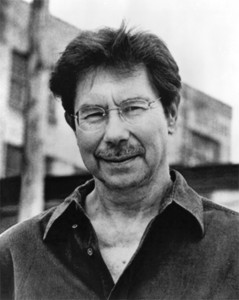 When I was in my mid-twenties I took a summer off from my job as a caseworker and tried to give myself more writing time. I wrote a story that summer called “The Palatski Man.” It wouldn’t be published for two or three years and when it was, it appeared in a sci-fi and fantasy magazine, not a lit mag. But that story took off in a direction that as the cliché goes “I couldn’t have imagined” (even though I apparently did) when I sat down to write. If I can credit myself with anything it was in allowing it to just go off on its own and following along rather than trying to exert some discipline over it.
When I was in my mid-twenties I took a summer off from my job as a caseworker and tried to give myself more writing time. I wrote a story that summer called “The Palatski Man.” It wouldn’t be published for two or three years and when it was, it appeared in a sci-fi and fantasy magazine, not a lit mag. But that story took off in a direction that as the cliché goes “I couldn’t have imagined” (even though I apparently did) when I sat down to write. If I can credit myself with anything it was in allowing it to just go off on its own and following along rather than trying to exert some discipline over it.
Looking back I think that in trying to exert control over a story—which naturally is something that a writer who is still learning the craft is trying to do—I was following my models too closely, juxtaposing their voices over my own material as if that would give my stuff form. The price I was paying for trying to exert control, was not arriving at my own voice. Maybe on some nearly unconscious level I was beginning to realize that. Writing “The Palatski Man” had a liberating effect in that rather than trying to exert control, I was able to surrender to the story. It was a border I had to cross and it was also something I had to learn to do by allowing myself to do it. To exert control had required that I copy other writers. When I was finished writing “The Palatski Man,” I realized the story had taken me to a place I could have never gotten to without writing it. That’s the first I still feel the most indebted to.
From the time that I began trying to write on my own in high school, I wrote to music. It was almost entirely jazz which was my first love and the music that opened the doors for me. One unconscious effect that I think writing to jazz had on me was that it emphasized the connection to American literary models. Jazz was important to writers like Fitzgerald and the whole notion of the Jazz Age, and later to the Beats, and to someone like Algren, a Chicago writer I admired. But by my early twenties I was exploring classical music, especially twentieth century classical and I wrote “The Palatski Man” to the music of Zoltan Kolday, his daemonic sonata for unaccompanied cello as played by Janos Starker as well as his duo for cello and piano. That music put me in a kind of trance and called up images I had not at that time had access to and fairytale kind of story to go with them. Under the spell of that music–I had checked those records on out the Chicago Public Library–I found within myself a kind of story I had never thought much about and had no intention of writing when I sat down at my desk and placed the needle on the record.
Line Breaks is a regular feature in which accomplished authors introduce and share their first published stories with the Fictionaut community. Line Breaks is edited by Gary Percesepe. Parts of this introduction appeared in SmokeLong Quarterly. You can read Stuart Dybek‘s “The Palatski Man” on Fictionaut.
-
1
Pingback on Apr 21st, 2010 at 3:48 pm
[…] Lemme start you off with another kick-ass short story from the Line Breaks feature of Fictionaut: “The Palatski Man,” by one of the modern masters of the short story, Stuart Dybek. If you’re interested in his […]
Apr 6th, 2010 at 9:49 pm
Hey, Stuart.
Been a long time.
You know, I gotta admit I’m not hearing Kodaly here. I dearly love his muscularity and depths but your lines are so festive with surprises and inventions and delights, in all colors, and your spell is closer for me to Prokofiev’s sorrows and dance leaps…anyhow, who cares? This is one grand story.